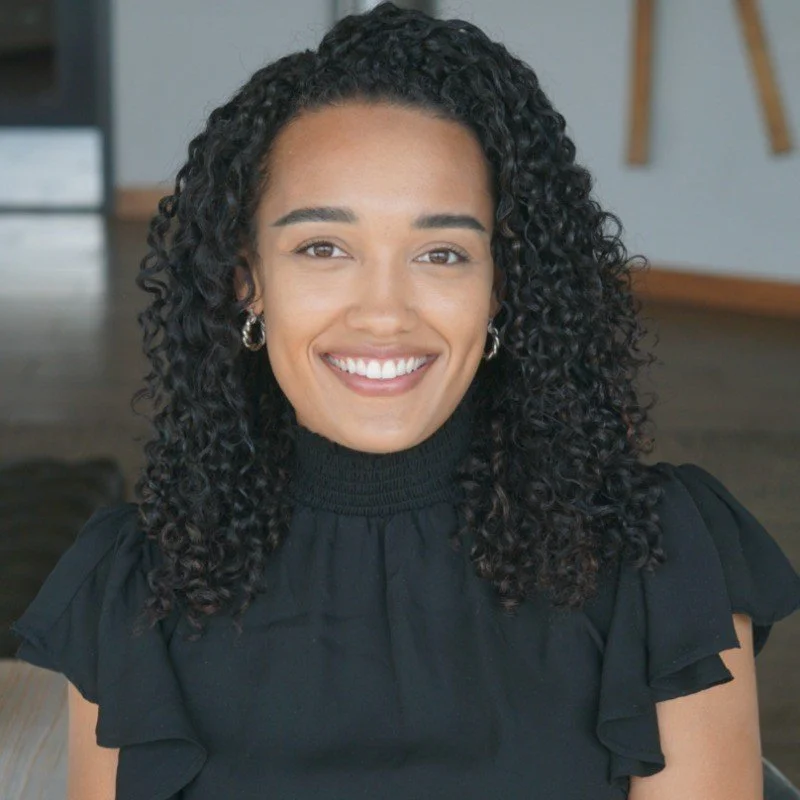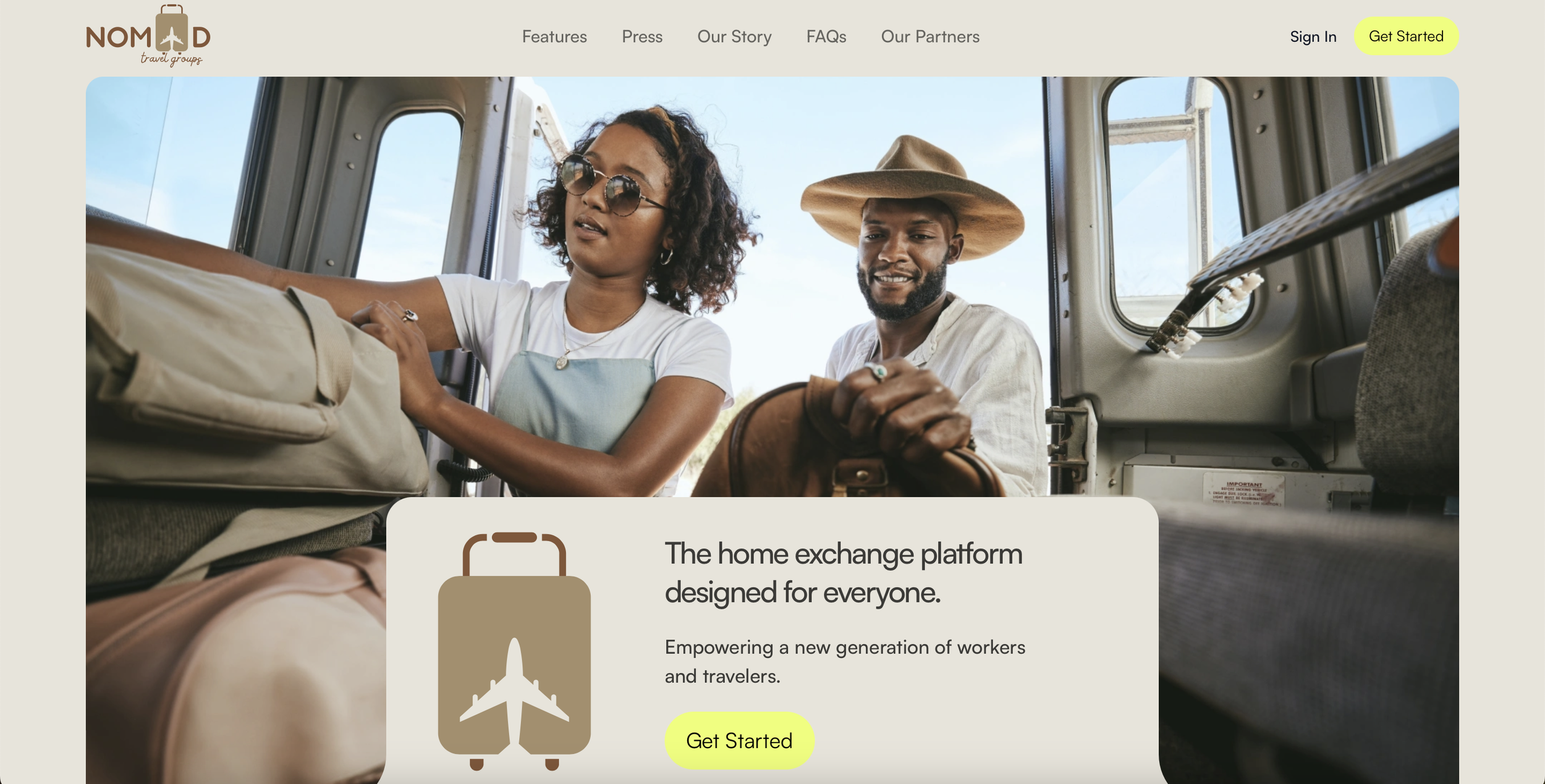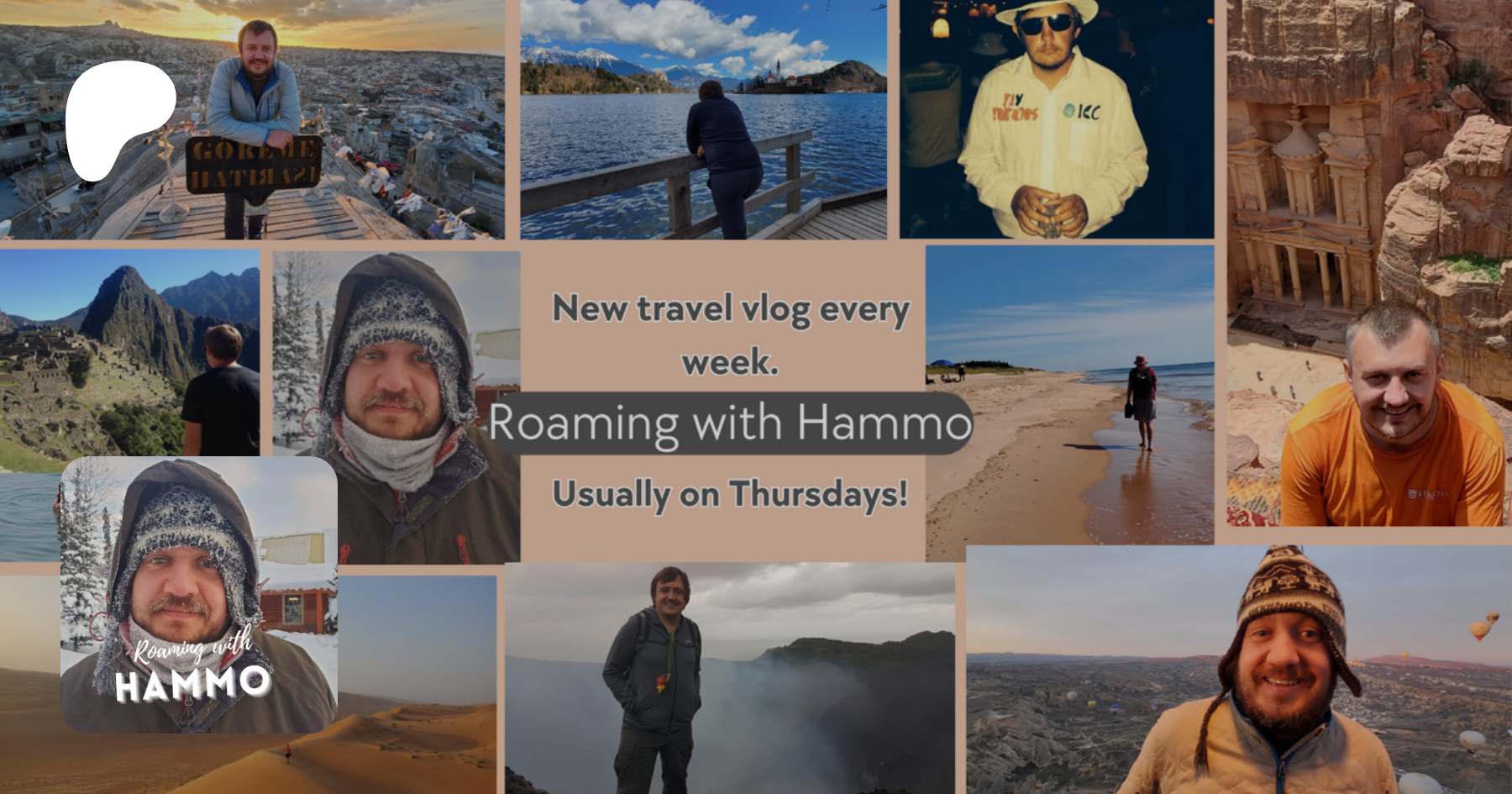NOMAD Travel Groups - The Home Exchange Platform Designed For Everyone
Ep 153 w/ Marie DeCosse - Launching NOMAD Travel Groups - The Home Exchange Platform Designed For Everyone
My latest Winging It Travel Podcast episode features Marie DeCosee, the founder and CEO of NOMAD Travel Groups.
Marie joined me for a conversation about her new venture, NOMAD Travel Group, a home exchange platform designed for everyone.
We all know the big hitters in this industry, such as AirBnb and Couchsurfing, but I was keen to hear more about how this platform will be different from those businesses.
Marie launched the product on August 16th, 2024, and the pre-launch was a success, with only two hundred people on the waitlist waiting to get their homes on the platform.
Naturally, I had a lot of questions to ask, and trust me; I asked them all.
Marie has a very interesting travel history, having lived in and grown up in Bangladesh and Madagascar. She is also half Senegalese, which is important to her as she loves her heritage and the country of one side of her family.
We delve into what life was like in those countries and other travel adventures Marie has had to date.
This episode covers wanderlust, living in unique countries, and a new business venture that is drawing excitement in the home-sharing industry.
Let’s dive into some topics in this blog.
No, really. You should book those flights to Italy like Marie mentioned in the episode! If you scan the QR code below or click the QR, a link will open a new tab on Skyscanner!
Book those flights with the link or QR code and help the Winging It Travel Podcast make a tiny commission.
How are Nomad Travel Groups different from other platforms in the market?
This was my main question for Marie in our conversation, and I am sure you did, too.
NOMAD Travel Groups require people to join travel assignment groups, and within these groups are people looking to travel to places like Austin, Texas, or New York City.
Within this group, people will be given a shared calendar, and then they organize a trip to the other traveler’s city and stay at their home.
It is a classic home swap, but there are a few rules. People signing up have to have single-dwelling properties, and if you rent, you will need permission from the landlord for someone to stay in your apartment or house for the duration of the trip.
Essentially, this appeals to travelers who are digital nomads or who can work remotely for a period of time but do not want to give up the place they live in.
There can even be three or four people in this assignment respectfully doing a three or four-way swap to each other’s cities.
To be able to offer your home, there is a strict security protocol to pass for security reasons, but once this has been approved, people can begin creating assignments and ask people to join them.
In an assignment, you can collaborate on calendars and message through the platform to arrange dates throughout the year and ultimately ask for tips on things to see and do, where to eat, the best areas to check out, and anything else you need to know.
Ultimately, Marie told us that the first launch will begin in North America, so you can begin signing up if you are in Canada, the USA, or Mexico.
Let’s hear Marie describing NOMAD Travel Groups below.
What are the fees, and how do Nomand Travel Groups make money?
First, there are no upfront membership fees for joining the platform.
A two-week stay with NOMAD costs $350 on average. NOMAD charges a transaction fee per Travel Group assignment, a small service fee per day of stay, and a cleaning fee which is distributed to the Host.
Hosts have the option to add-on guest damage protection coverage, through our partnership with Superhog, to protect their home should issues arise during a stay.
So, who is this appealing to?
This will be for people traveling often and requiring accommodation in cities, but as we all know, the costs of hotels, hostels, and Airbnb have increased significantly since the pandemic.
Hotels can cost, on average, over $200 across the USA, which would be $1400 a week. So, by swapping your home, you are potentially saving over $1000 a week when traveling.
This is a huge saving!
How often have you booked an Airbnb for a similar cost, and the accommodation is not even as described on the post? This has happened so often in cities, which has turned me off their platform.
What I love about this platform is the guarantee of a single dwelling, with no extra roommates hanging around or unexpected visitors.
I will be excited to see how this progresses for NOMAD going into 2025.
Reverse culture shock going back to the USA from Madagascar and Bangladesh.
Marie has a super interesting background. She is half Senegalese and lived in Bangladesh and Madagascar during her childhood through her parents’ work.
She speaks highly of living in Bangladesh, where family culture is strong. People always were together, eating meals together, inviting people into their homes, and being part of a strong community.
Returning to the USA from Bangladesh, she reversed the culture shock.
Reverse culture shock, or reentry shock, refers to the difficulty sometimes experienced when returning to your home country and culture after you have had experiences in another country. While a wide range of responses is expected, some may be unexpected.
Have you ever experienced this?
I have this myself to some degree, having lived outside of the UK for nearly a decade. Going home is always nice for a few weeks, but I get itchy feet and the urge to leave again soon.
Many travelers experience this when they return home from a big trip, almost like the ‘travel blues.’ I have this feeling almost weekly.
Marie describes Madagascar as a very different experience. Due to the political turmoil at the time, she and her family were confined to the compound and had security when traveling.
Being half Senegalese, she visited Senegal often and loved the culture. She also speaks French, which is handy for conversing with the local population.
They loved playing football on the beach and invited you to play, but beware—they won’t take it easy on you.
Like Bangladesh, Senegalese people have a family-oriented mentality and are inclusive of everyone, so eating local food is key. As I have heard on the podcast, Senegalese food sounds like some of the best in the world.
I love how people welcome you as a tourist, invite you for dinner, and talk to you.
How strange and unfortunate that North America and parts of Europe are very insular, with no community whatsoever. This is dangerous, as we need to talk to people, understand their struggles, and learn; otherwise, we enter a dangerous world of isolation.
Marie had This exact feeling when returning to the USA with the reverse culture shock: She didn’t feel like part of a family, neighbors were not inviting her in for incredible dinners, and it was a huge adjustment to adhere to American life.
From the sounds of it, that is why she is now based in Colorado rather than Washington, D.C.
I loved hearing Marie’s stories from her travels to these countries, especially from her living there. Make sure you check out the full episode to hear more.
Check out my latest YouTube episode in Kathmandu.
Other ways to support the podcast
My Patreon for Roaming with Hammo - support me today!
Supporting the podcast can be quick, easy and free. You can visit the platform you use for listening to podcasts and leave a five-star review and a nice little comment to go hand-in-hand. Check out my podcast page here.
Alternatively, you can contribute to the podcast by using my Buy Me A Coffee page where you can buy me a nice coffee for $5 whilst I conduct the interviews or click the button below.
I imagine most people listening to the podcast and reading this article are travel enthusiasts. Another way to support the podcast is to use my affiliate links to book flights, accommodations, tours, transport, and more. Click here to use them today!
My Instagram promotion for my latest guest episode
Who is Marie DeCosse?
It all started on the beaches of Saboga..
As founder, Marie DeCosse, sat with friends gazing at the tranquil waves ebbing from the coast of Saboga, Panama, a conversation unfolded about life's joys—relationships, freedom, and travel. This conversation sparked a realization: why work tirelessly only to savor such moments a few times a year? With a background in international tax and a passion for travel, Marie created NOMAD with the aim to transform conventional home and time-sharing models.
"This generation was given an early taste of what work-life balance means. We've learned we don't need desk chains or lengthy commutes to succeed." says Marie.
Recognizing a gap in the travel industry, NOMAD was born—a home-sharing service that caters to a new breed of travelers seeking long-term stays without the logistical headaches and monetary constraints.
NOMAD simplifies travel by curating Travel Groups that are aligned with location and property preferences, foster connections, and streamline arrangements—all at an accessible price point. We are the accommodation solution for the modern-day traveler. Thank you for joining us on this journey!
This episode is available on Spotify, Apple Podcasts, Spreaker, Audible and YouTube. And anywhere else, you get your podcasts!
Be sure to follow me on Instagram too!







